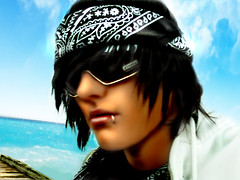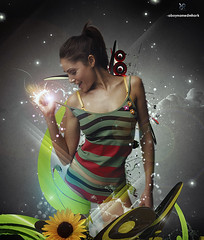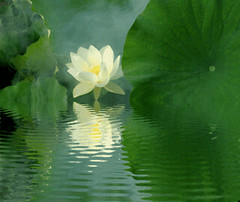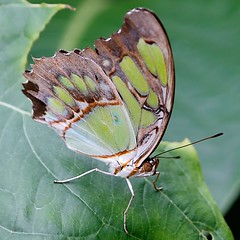From Mark Flanagan,
Your Guide to Literature: Contemporary.
While it is impossible to rank the most important authors in contemporary literature, here is a list of ten important (English language) authors with some biographical notes and links to more information about them and their work.
1) Isabel Allende
Chilean-American author Isabel Allende wrote her debut novel, House of Spirits to great acclaim in 1982. The novel began as a letter to her dying grandfather and is a work of magical realism charting the history of Chile. Allende began writing House of Spirits on January 8th, and subsequently has begun all her books on that day.
2) Margaret Atwood
Canadian author Margaret Atwood has numerous critically-acclaimed novels to her credit, most recently Oryx and Crake and The Penelopiad (2005). She is known for her feminist themses, but her prolific output of work spans both form and genre.
3) Jonathan Franzen
Winner of the National Book Award for his 2001 novel, The Corrections, and a frequent contributor to The New Yorker magazine, Jonathan Franzen is also the author of a 2002 books of essays entitled How to Be Alone and a 2006 memoir, The Discomfort Zone.
4) Ian McEwan
British writer Ian McEwan started winning literary awards with his first book, First Love, Last Rites (1976) and never stopped. Atonement (2002) won several awards and is being made into a movie, and Saturday (2005) won the James Tait Black Memorial Prize.
5) David Mitchell
English novelist David Mitchell is known for his tendency toward experimental structure. In his first novel, Ghostwritten (1999), he uses nine narrators to tell the story and 2004's Cloud Atlas is a novel comprised of six interconnected stories. Mitchell won the John Llewellyn Rhys Prize for Ghostwritten, was shortlisted for the Booker Prize for number9dream (2001) and Cloud Atlas, and is on the Booker longlist for Black Swan Green (2006).
6) Toni Morrison
Toni Morrison's Beloved (1987) was named best novel of the past 25 years in a 2006 New York Times Book Review survey. The novel won the Pulitzer Prize in 1988, and Toni Morrison, whose name has become synonymous with African American literature, won the Nobel Prize in Literature in 1993.
7) Haruki Murakami
Son of a Buddhist priest, Japanese author Haruki Murakami first struck a chord with A Wild Sheep Chase in 1982, a novel steeped in the genre of magical realism which he would make his own over the coming decades. Murakami's most popular work among Westerners is The Wind-Up Bird Chronicle, though 2005's Kafka on the Shore met with success in this country, as well. The English version of Murakami's most recent novel, After Dark, is slated for release in 2007.
8) Philip Roth
Philip Roth seems to have won more book awards than any other American writer alive. Most recently he won the Sidewise Award for Alternate History for The Plot Against America (2005) and a PEN/Nabokov Award for Lifetime Achievement in 2006. In Everyman (2006), Roth's 27th novel, he sticks to one of his familiar themes: what it's like growing old Jewish in America.
9) Zadie Smith
Literary Critic James Wood coined the term "hysterical realism" in 2000 to describe Zadie Smith's hugely successful debut novel, White Teeth, which Smith agreed was a "painfully accurate term for the sort of overblown, manic prose to be found in novels like my own White Teeth." Her third novel, On Beauty, was shortlisted for the Booker Prize and won the 2006 Orange Prize for Fiction.
10) John Updike
Terrorist (2006) is the most recent in the twenty-some novels John Updike has to his credit. His four Rabbit Angstrom novels were named in 2006 among the best novels of the past 25 years in a New York Times Book Review survey.
skip to main |
skip to sidebar






























Blog Archive
-
▼
2006
(1010)
-
▼
September
(65)
- Quel Objet - Chickens
- The weirdest pillows I've ever seen.
- the dogs.
- What a difference packaging makes.
- Simply because I have nothing else to post today.
- The coolest onesies ever.
- Computer advertising.
- Disco nap stickers.
- The Urban Forest Project
- My eyes! My eyes!
- Send beer.
- Badgerbadgerbadgerbadger.
- Sommelier wine glasses.
- The Ninja Text Generator.
- If only all news magazines had photography like this.
- Recycled chandelier @ Designersblock (London Desig...
- Throwing a question out there...
- Best error message ever?
- Wolves In the Walls online teaser
- Polaroid art @ Molly Mast.
- Bob's Your Uncle melamine diner plates.
- Satinbox : a nice little online gift store.
- Cambridge in colour.
- eBay.co.uk: MY HANDWRITTEN JOURNAL:JESUS APPEARED...
- Lockpick business cards.
- Sitters In the City
- I smirked at the intro, but laughed at the pic.
- Free Flickr MiniCards from MOO.
- “Xue” in the Analects of Confucius
- Rough type.
- Light sculpture.
- Mann made :: Furniture & design from India
- artnet Horoscopes.
- One Year Of White Pages.
- Wi-fi Diner.
- Eclipsed Moon Rising Over England
- Flat Flower window clings.
- Top 10 Important Contemporary Authors Alive Today
- China Open
- Off to NY...
- The king of papercuts.
- Tonight on the Sundance Channel.
- Art in Odd Places | 2006
- The Perpetual Postcard Calendar.
- Modern Mechanix
- No ordinary day at the beach.
- Loraine Rutt :: Ceramics
- Pluto Replies
- Rae Dunn @ Magenta Inc.
- 2007 Pentagram Typography Calendar
- Timmy, you must go to Berlin!
- Buy yourself some literary fame.
- New Labbits.
- Binvention - Home Recycling Organiser
- It made me laugh.
- Independent Online :: Banksy targets Paris Hilton
- Doc sofa/bunk bed.
- Green & gorgeous residence of the Swiss Ambassador.
- Tricky Dick action figure.
- TASCHEN $9.99 art & design books.
- Marimekko & Ljungbergs wall hanging kits.
- The Project Runway store.
- Not just for bathrooms anymore.
- So few words. So much cringing.
- Off to a Packer game...
-
▼
September
(65)
